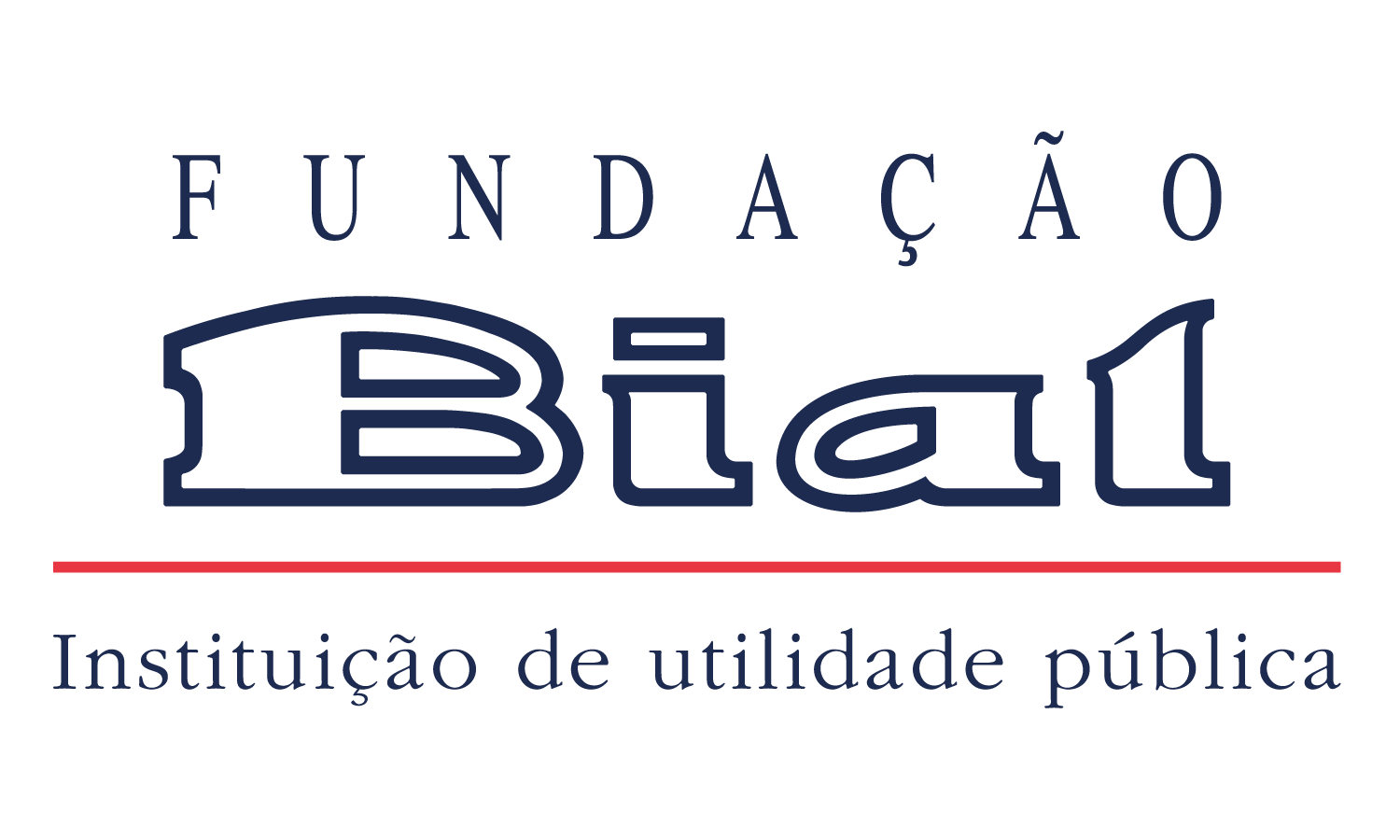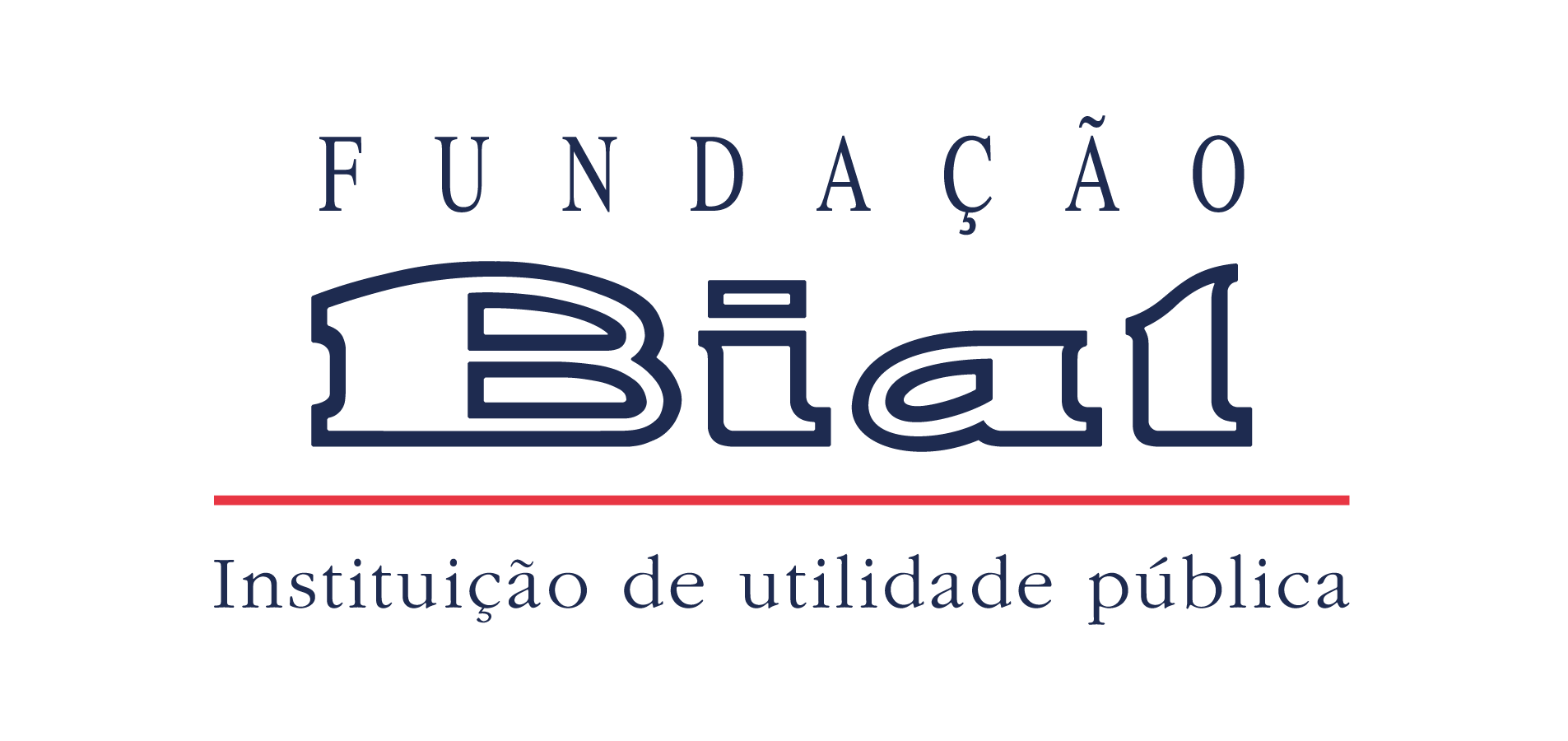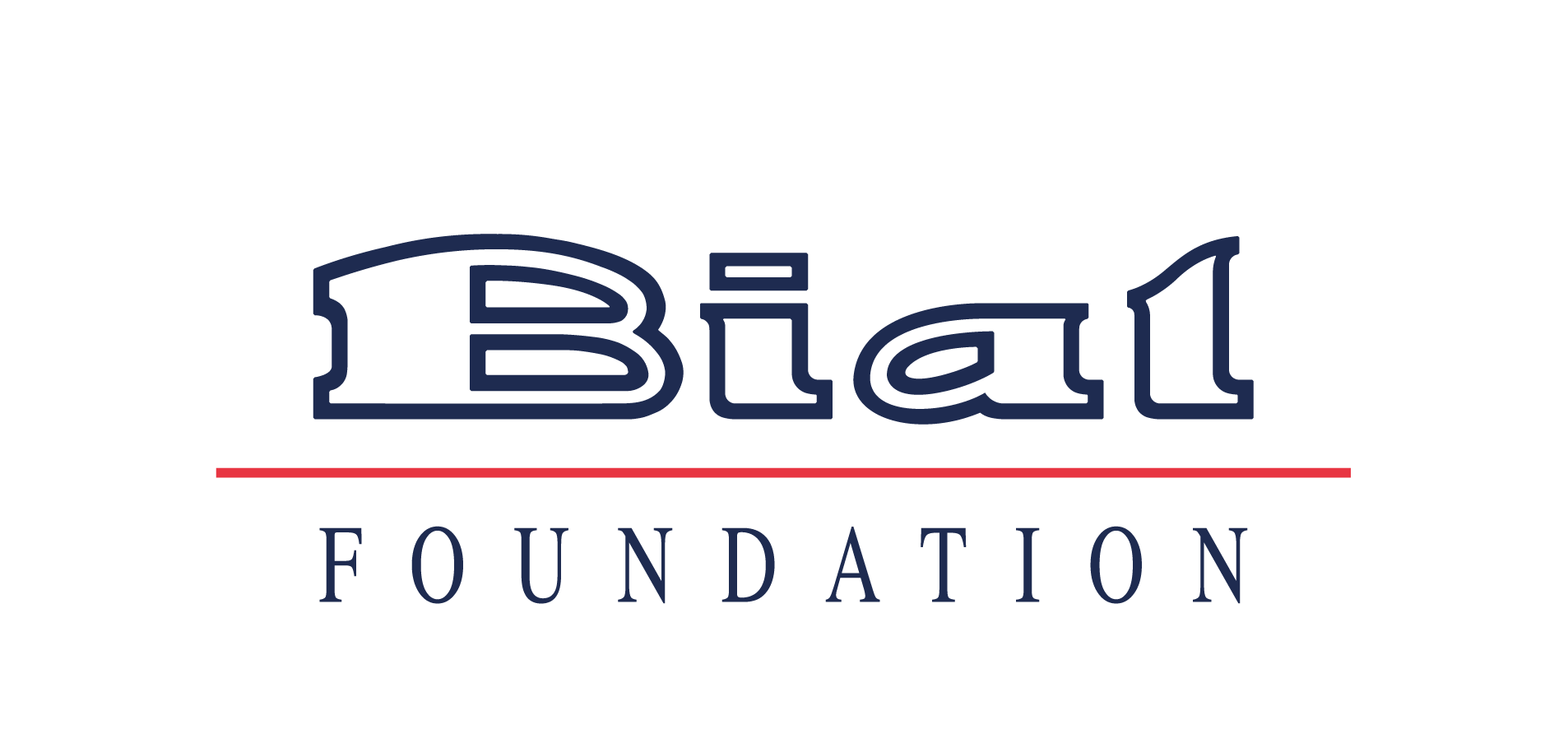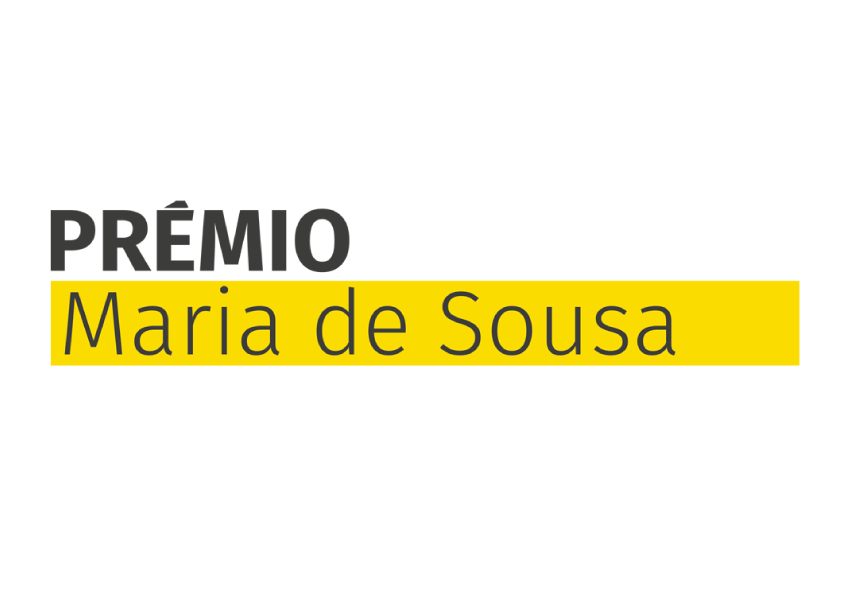Notícias
- Science Stories
- Destaques
- Looking for collaboration
- Links úteis
- Logos
Science Stories
É a concretização da nossa missão. Desde a sua criação a Fundação BIAL já aprovou para financiamento 946 projetos, envolvendo cerca de 1900 investigadores de 31 países. São três décadas de apoios a Projetos de Investigação Científica orientados para o estudo neurofisiológico e mental do ser humano, nas áreas da Psicofisiologia e da Parapsicologia.Conheça as histórias por detrás da ciência.
Science Stories
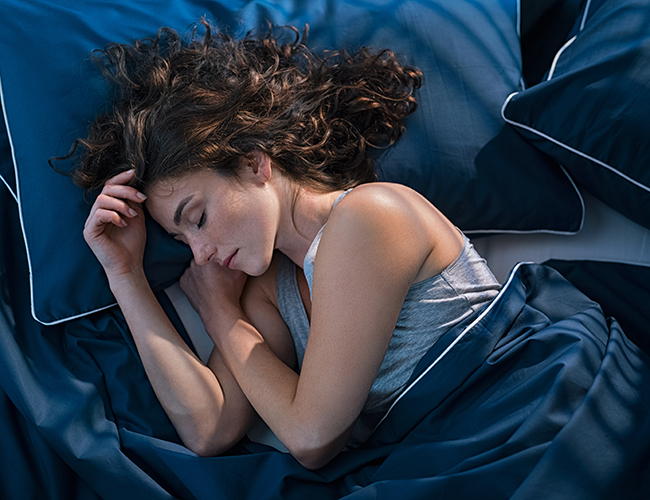
Sonhar enquanto se dorme e “sonhar acordado”: diferenças e semelhanças
Sabia que os sonhos “diurnos” refletem acontecimentos dos dois dias anteriores, enquanto os sonhos “noturnos” se assemelham a um enredo de ficção?

O seu cão tem competências sociais?
Estudo revela que a visualização do rosto do dono funciona como reforço social positivo para os cães. Conheça resultados intrigantes sobre o “melhor amigo do homem”.
News

O efeito placebo nas práticas religiosas
O artigo Placebo effects in the context of religious beliefs and practices: A resting-state functional connectivity study resultante do projeto 02/18 - Neurobiological effects of Lourdes water: an fMRI study, apoiado pela Fundação BIAL, foi publicado por Anne Schienle, da Universidade de Graz (Áustria), na revista Frontiers in Behavioral Neuroscience.
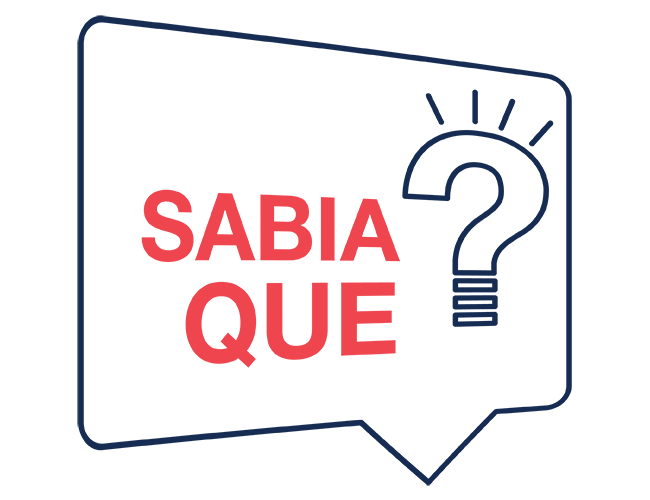
Dos projetos apoiados pela Fundação BIAL resultaram 1.457 publicações indexadas
Sabia que o trabalho financiado pela Fundação BIAL resultou, até abril de 2021, na publicação de 1.829 artigos, dos quais 1.457 em revistas indexadas (no Scopus ou Web of Science) e 1.238 em revistas com fator de impacto?

Foi recentemente lançada a revista “Journal of Anomalous Experience and Cognition”
Sabia que foi recentemente lançada a revista científica Journal of Anomalous Experience and Cognition, que está a aceitar a submissão de manuscritos? Esta revista científica com revisão por pares é dedicada à publicação de artigos referentes a Experiências Excepcionais, espontâneas ou induzidas, invulgares, mas não necessariamente patológicas, tais como experiências místicas, experiências fora do corpo, entre outras, que têm um efeito impactante na vida da pessoa. Também abrange o estudo das Cognições Excecionais no sentido de melhorar a nossa compreensão acerca de interacções em que parece ocorrer troca de informação e/ou energia entre pessoas e/ou entre pessoas e objetos espacial ou temporalmente distantes.

Como é que o cérebro controla determinadas ações?
Stephanie Rossit, investigadora principal do projeto 184/14 - Decoding neural representations of human tool use from fMRI response patterns, financiado pela Fundação BIAL, publicou o artigo Hand-selective visual regions represent how to grasp 3D tools: brain decoding during real actions na revista Journal of Neuroscience e realizou uma reportagem sobre o tópico no The Conversation UK.

Como é que o stress influencia a cognição social?
A equipa de investigação do projeto 72/18 - Temperamental influences on social cognition under stress, coordenado por Frederike Beyer, publicou na revista Stress: The International Journal on the Biology of Stress o artigo Regulating interpersonal stress: the link between heart-rate variability, physical exercise and social perspective taking under stress.

A Fundação BIAL é percecionada como “Visionária”
Sabia que alguns dos investigadores apoiados pela Fundação BIAL descrevem-na como “Visionária”?
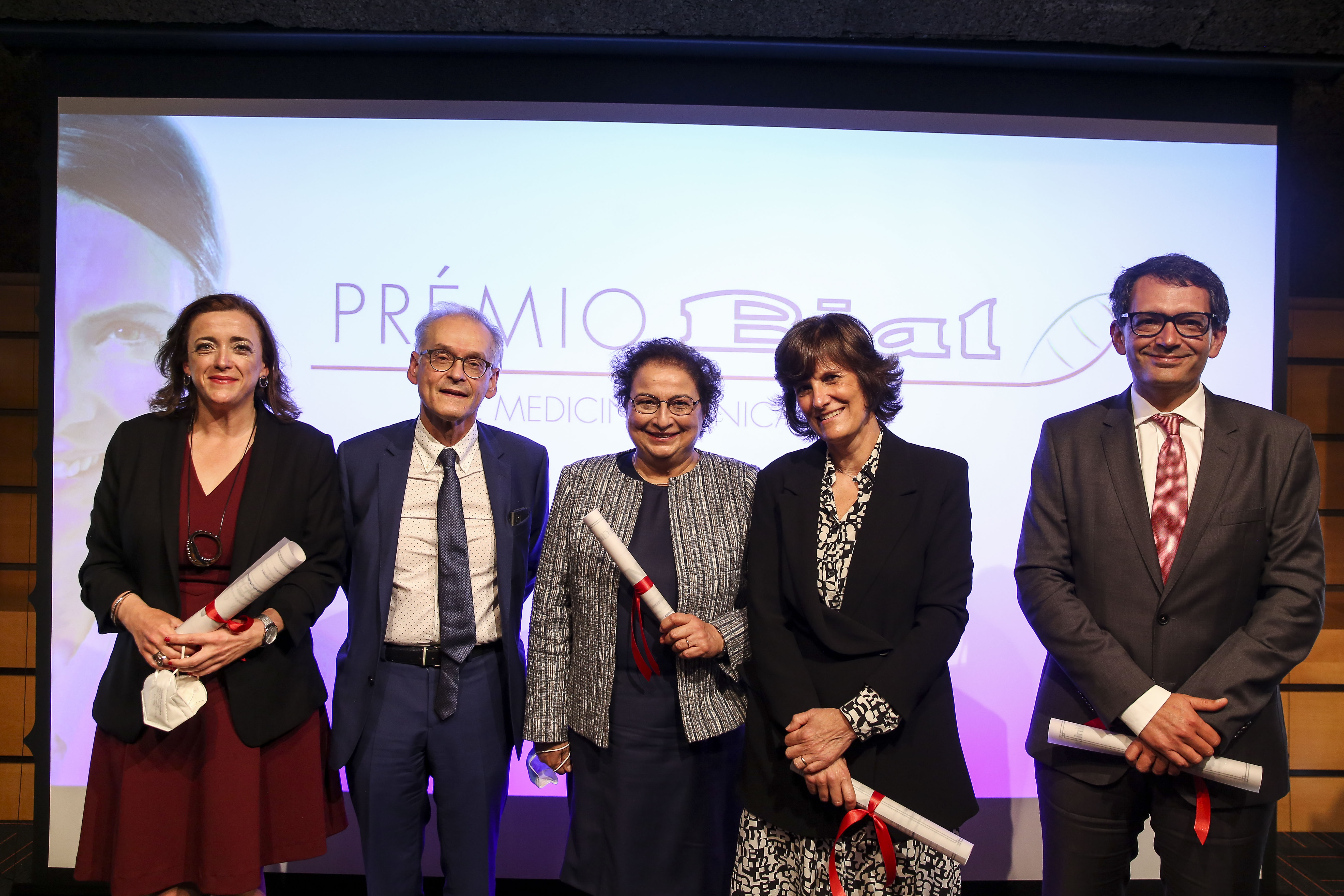
Prémio BIAL de Medicina Clínica 2020 distingue trabalho sobre a doença dos pezinhos, cancro e a COVID-19
O Prémio BIAL de Medicina Clínica 2020 distinguiu uma equipa coordenada por Teresa Coelho, Diretora do Serviço de Neurofisiologia do Centro Hospitalar Universitário do Porto, com a obra “A Paramiloidose em Portugal e no mundo: de doença fatal a doença crónica com qualidade de vida preservada”. Foram ainda atribuídas Menções Honrosas a "Zebrafish Avatars, Towards Personalized Cancer Treatment, a multidisciplinary venture”, um trabalho coordenado por Rita Fior, da Fundação Champalimaud; e a “Abordagem do doente crítico com COVID-19”, coordenado pelo médico João João Mendes, do Hospital Fernando da Fonseca.

O efeito benéfico da aceitação no bem-estar psicológico
Antonino Raffone e colaboradores reportaram parte dos resultados do projeto Aware Mind-Brain: Bridging insights on the mechanisms and neural substrates of human awareness and meditation, apoiado pela Fundação BIAL, no artigo Acceptance, and Not Its Interaction with Attention Monitoring, Increases Psychological Well-Being: Testing the Monitor and Acceptance Theory of Mindfulness publicado na revista Mindfulness.
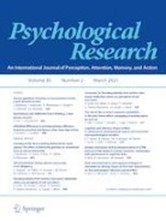
O impacto do espaço e do tempo na perceção
No âmbito do projeto de investigação apoiado pela Fundação BIAL 376/14 - Lateralisation of cognitive functions in the brain: Typical vs. atypical patterns, Deborah J. Serrien e Michiel Spapé publicaram o artigo Space, time and number: common coding mechanisms and interactions between domains na revista Psychological Research.
Looking for collaboration

The quest of physiological markers for the experience of pain
Researcher: Elia Valentini - Department of Psychology & Centre for Brain Science, University of Essex Summary: The aim of this project is to improve measurement of the human experience of pain by investigating a combination of psychophysical and physiological responses during mild noxious stimulation. More specifically, we want to investigate how sensitive and specific to pain the brain oscillatory responses are. We use EEG as the main technique, but we are keen to collaborate with neuroscientists using fMRI, autonomic measures and brain stimulation as well as with computational neuroscientists. A clinical collaborator would also be very much welcome.

EEG investigation of hypnosis and decision-making
Researcher: Rinaldo Livio Perri - University Niccolò Cusano Rome, Italy Summary: I work in the field of hypnosis and cognitive neuroscience. In particular, I adopt the event-related potentials (ERPs) to investigate the effect of the hypnotic suggestions on sensory processing and cognitive performance. I am an expert in decision-making and proactive brain processes before the stimulus administration (e.g., the perceptual, prefrontal and premotor readiness during the expectancy stage). I could help colleagues to properly analyze the ERP signal in the pre-stimulus stage of processing. Also, I would be happy to share my EEG data for re-analyzing them in the frequency domain (e.g., wavelet or coherence analysis in the hypnosis research). Feel free to contact me for any question! More information on my papers: https://scholar.google.it/citations?user=-8e_V64AAAAJ&hl=it Possible collaborations: neuroscientist with experience in the EEG frequency analysis Email: perri.rinaldo@gmail.com

Transparent Psi Project - looking for collaborators
Summary: We are running a fully transparent, expert consensus-base multilab replication of Bem’s (2011) experiment 1. The project features state of the art methods to maximize transparency and study integrity. The study involves a computerized experiment taking about 20 minutes per session. Group testing is possible in a computer lab, no specialized equipment needed. Labs are expected to recruit at least 100 participants. Participants will be exposed to images with explicit erotic/sexual content in the experiment. No financial compensation is required for the participants. Data collection is expected to take place in the 2020 fall semester. Every material is provided for ethics/IRB submissions and data collection in English (translation of materials might be necessary by the collaborators). The study is pre-registered and the manuscript is accepted in principle for publication in the journal Royal Society Open Science. All collaborators who meet the minimum sample size criterion will get authorship on this paper reporting the results of the replication study. More information in the preprint: https://psyarxiv.com/uwk7y/ Indicate interest in the collaboration via the following form: https://tinyurl.com/tpp-labs With any question contact the lead investigator: Dr. Zoltan Kekecs, kekecs.zoltan@gmail.com

Cognitive control and learning
Researcher: Ignacio Obeso, Ph.D. / CINAC - HM Puerta del Sur Summary: The aim of our projects is to understand the behavioral and neural mechanisms used to learn how humans establish adaptive behaviour in changing contexts. More specifically, we want to decipher how stopping abilities are initially learned and later executed under automatic control. We use task-related fMRI, brain stimulation and clinical models to test our predictions in laboratory settings as well as online home-based paradigms. Possible collaborations: computational scientist Email contact: i.obesomartin@gmail.com https://iobesomartin.wixsite.com/cognitivecontrol
Veja aqui links de Fundações, Organizações, Sociedades e outros que lhe podem interessar.
- BrainFacts.org
- Cognitive Neuroscience Society
- Dana Foundation
- European Brain Council
- European Society for Cognitive and Affective Neuroscience (ESCAN)
- Federation of European Neuroscience Societies (FENS)
- Human Brain Project
- IANDS International Association for Near-Death Studies
- Institut Métapsychique International (IMI)
- Instituto de Psicologia Paranormal
- International Behavioral Neuroscience Society (IBNS)
- International Brain Research Organization
- IONS Institute of Noetic Sciences
- Kavli Foundation
- Koestler Parapsychology Unit
- Open Sciences
- Organization for Human Brain Mapping (OHBM)
- Parapsychological Association
- Psi Encyclopedia
- Rhine Research Center
- Sociedade Portuguesa de Neurociências
- Sociedade Portuguesa de Neurologia
- Society for Neuroscience
- Society for Psychical Research
- Society for Scientific Exploration (SSE)
- World Federation of Neurology

